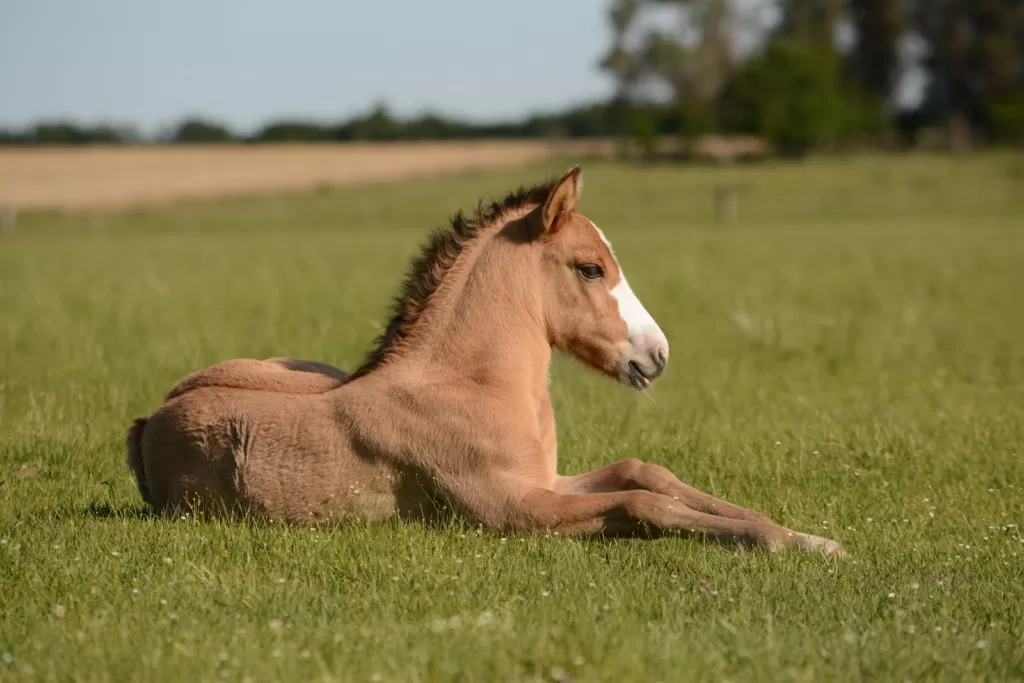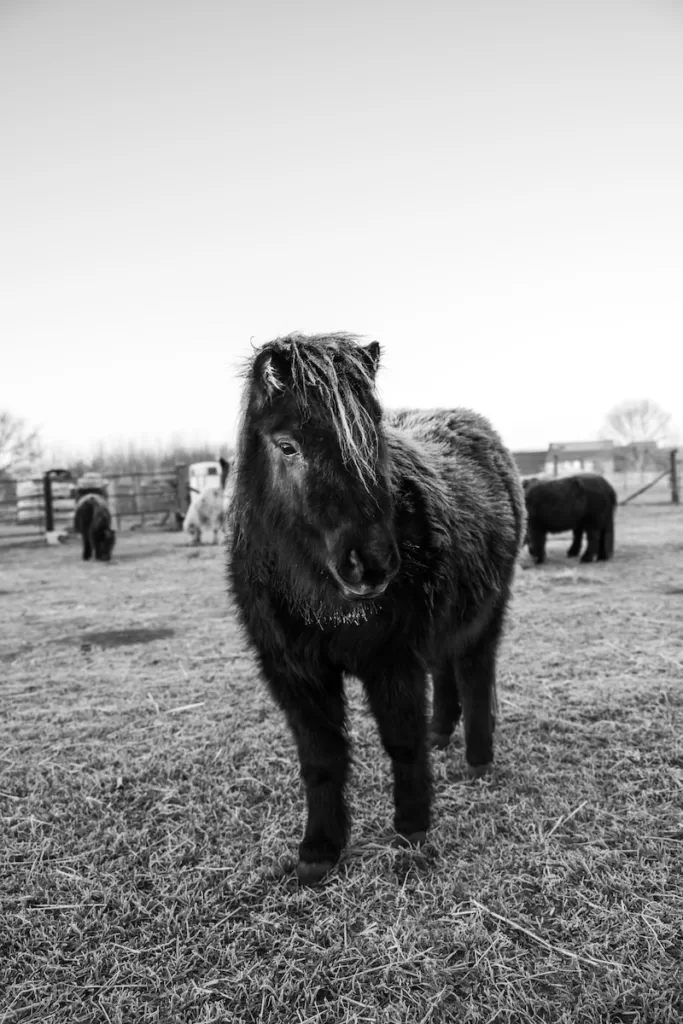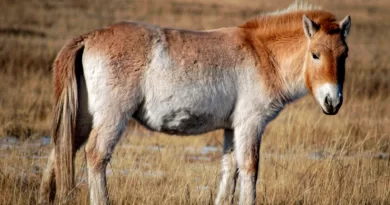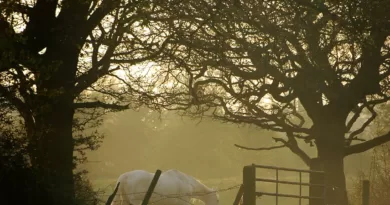Miniature Horse Lifespan: A Fascinating Journey
Understanding the Miniature Horse Lifespan
Miniature horses, often referred to as minis, may be small in size, but their presence is mighty. On average, a miniature horse can live between 25 to 35 years. This impressive lifespan can be attributed to several factors, which we’ll delve into shortly.
Factors Influencing Miniature Horse Longevity
1. Genetics
Just like humans, genetics play a crucial role in determining a miniature horse’s lifespan. Some bloodlines are known for their longevity, while others may have predispositions to certain health issues. Responsible breeding practices can help improve the overall health of miniatures.
2. Diet and Nutrition
A balanced and nutritious diet is essential for miniatures. Proper nutrition supports their overall health and can contribute significantly to a longer lifespan. Consulting with a veterinarian for a tailored feeding plan is recommended.
3. Regular Veterinary Care
Regular check-ups and vaccinations play a crucial role in maintaining the health of miniature horses. Prompt medical attention can detect potential health problems at an early stage, thus preventing them from progressing and negatively affecting the horse’s overall lifespan.
4. Exercise and Activity
Miniature horses may be small, but they still require regular exercise and mental stimulation. Adequate physical activity promotes muscle strength and mental well-being, contributing to a longer and healthier life.
5. Environment and Shelter
Providing a safe and comfortable living environment is essential. Protection from extreme weather conditions and access to clean water and shelter are crucial factors in ensuring a mini’s well-being and longevity.
Caring for Miniature Horses
Now that we understand the factors that influence miniature horse lifespans, let’s explore some essential tips for their care.
1. Regular Health Check-ups
Schedule regular vet visits to monitor your miniature horse’s health. This proactive approach can address health issues early on and extend their lifespan.
2. Balanced Diet
Consult with a veterinarian or equine nutritionist to create a well-balanced diet plan tailored to your mini’s specific needs.
3. Exercise and Mental Stimulation
Engage your miniature horse in regular physical activities and provide mental stimulation through toys and interaction. This keeps them active and happy.
4. Safe Shelter
Ensure your mini has a secure and comfortable shelter that protects them from harsh weather conditions.
Conclusion
In conclusion, the miniature horse lifespan is a fascinating topic that unveils the secrets of these charming creatures. By understanding the factors that influence their longevity and providing proper care, we can ensure that our miniature horses live happy and healthy lives, delighting us for years to come.
See Also: How long do horses live? Amazing Facts About Horses’ Life
Frequently Asked Questions
1. What is the average lifespan of a miniature horse?
The average lifespan of a miniature horse is typically between 25 to 35 years, making them long-lived companions.
2. How can I improve my miniature horse’s longevity?
You can enhance your miniature horse’s longevity by focusing on genetics, diet, regular veterinary care, exercise, and providing a suitable environment.
3. Are there specific health issues common in miniature horses?
Yes, certain health issues such as obesity, dental problems, and hoof issues are more prevalent in miniature horses. Regular check-ups and a healthy lifestyle can help mitigate these concerns.
4. Do miniature horses require different care compared to full-sized horses?
Miniature horses do require some specific care due to their size, but many principles of equine care apply to them as well. Adjustments should be made to accommodate their smaller stature.
5. Can miniature horses be kept as pets?
Yes, miniature horses make wonderful pets and companions due to their gentle nature and long lifespan. They can form strong bonds with their human caregivers.
6. What is the importance of hoof care for miniature horses?
Hoof care is crucial for miniature horses as they can be prone to hoof issues. Regular trimming and attention to hoof health are essential for their overall well-being.
7. How do I choose the right diet for my miniature horse?
Selecting the right diet for your miniature horse involves consulting with a veterinarian or equine nutritionist. They can provide guidance on the specific nutritional needs of your mini based on its age, weight, and activity level.
8. Are there any unique behavioral traits in miniature horses?
Yes, miniatures often exhibit unique personalities and behaviors. Some are known to be incredibly friendly and sociable, while others may be more reserved. Understanding your mini’s personality can help you cater to their emotional well-being.
9. Can miniature horses be trained for specific tasks?
Yes, miniature horses can be trained for various tasks, such as therapy work, agility, and even as guide animals for the visually impaired. Their intelligence and willingness to learn make them versatile and valuable.
10. What are some common signs of health issues in miniature horses?
Keep an eye out for signs of health problems in your miniature horse, including weight loss, changes in eating habits, lameness, dental issues, or changes in behavior. If you notice any of these signs, consult with a veterinarian promptly.
11. How should I groom my miniature horse?
Grooming is an essential part of caring for a miniature horse. Regular brushing, hoof cleaning, and mane and tail care are crucial. Grooming not only keeps your mini looking its best but also allows you to check for any injuries or abnormalities.
12. Are miniature horses suitable for children?
Miniature horses are often fantastic companions for children due to their small size and gentle disposition. However, supervision is essential to ensure the safety of both the child and the horse.
13. What are some common misconceptions about miniature horses?
One common misconception is that miniature horses are merely novelty pets. In reality, they are intelligent, trainable, and capable of forming deep bonds with their owners. Another misconception is that they require less care than larger horses, which is not true.
14. Can miniature horses participate in equestrian competitions?
Yes, miniature horses can participate in various equestrian events and competitions, including halter classes, obstacle courses, and driving competitions. Their agility and charm often make them crowd favorites.
15. How can I extend the lifespan of my miniature horse?
To maximize your miniature horse’s lifespan, focus on providing excellent nutrition, regular exercise, and attentive healthcare. Regularly consult with a veterinarian and maintain a loving and stimulating environment for your mini.
16. Where can I find resources and support for miniature horse enthusiasts?
There are various online forums, social media groups, and organizations dedicated to miniature horses. Furthermore, these platforms offer a wealth of information, advice, and a sense of camaraderie among miniature horse lovers. Additionally, you can connect with fellow enthusiasts, ask questions, and even share photos and stories of your own mini.
17. Are there miniature horse events and shows?
Yes, miniature horse events and shows are popular worldwide. These gatherings allow owners to showcase their minis, compete in various categories, and appreciate the beauty and talents of these small equines. Attending such events can be a fun and educational experience for both enthusiasts and the general public.
Miniature Horses in Therapy and Assistance
Miniature horses have a special role to play in therapy and assistance programs. Additionally, their gentle nature and small size make them ideal for providing emotional support and assistance to individuals with special needs. Furthermore, these remarkable creatures can also serve as fantastic companions, fostering a sense of connection among those they interact with.
18. How do miniature horses contribute to therapy and assistance?
Miniature horses are trained as therapy animals to assist individuals with physical and emotional challenges. They provide comfort, companionship, and a sense of security. Their visits to hospitals, nursing homes, and rehabilitation centers can have a profoundly positive impact on patients’ well-being.
The Future of Miniature Horses
As we look ahead, the world of miniature horses continues to evolve. Furthermore, advancements in breeding, care, and equine research contribute significantly to the betterment of these remarkable creatures. Additionally, ongoing efforts are shaping the future of miniature horse welfare.
19. What can we expect from the future of miniature horse breeding?
The future holds exciting possibilities for miniature horse breeding. Breeders continue to refine bloodlines, improve health standards, and work towards producing even smaller and refined minis. As genetics and technology advance, miniature horse enthusiasts can look forward to an even more diverse and healthy population of these horses.
20. How can I get involved in promoting and protecting miniature horses?
If you’re passionate about miniature horses, consider joining organizations dedicated to their welfare and promotion. These groups often advocate for legislation that protects these equines and host events that raise awareness about their unique qualities. Your involvement can help ensure the future of miniature horses is bright.
Enjoyed this article? You May Also Like:
- Learn in 5 minutes about Cryotherapy for Horses
- Penicillin in Horses; Impeccable Guide in 10 minutes
- Excede Antibiotic For Horses, Fantastic Facts in 5 minutes
- The Science of Oxytocin in Horses: How This Hormone Influences Equine Behavior
- Can Horses Swim? Everything You Need To Know About Horse Swimming






